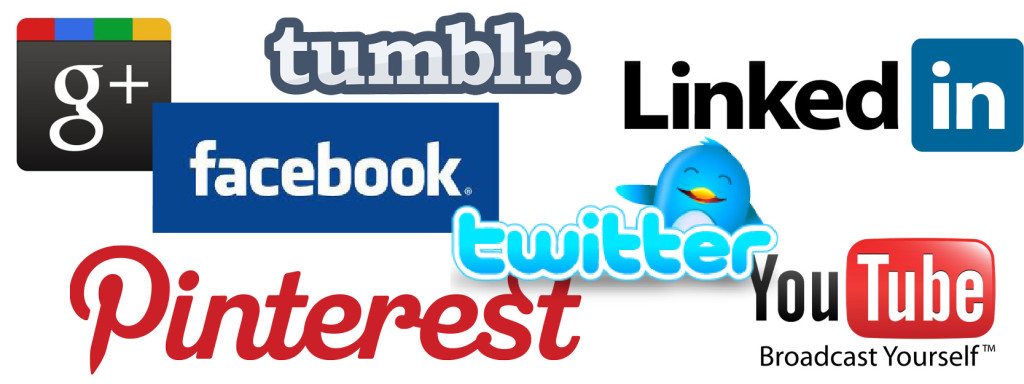Social Networking for Bands
By David A. Barber
Author of Gigging, Everything You Need to Know About Playing Gigs (Except How to Play Your Axe)
If you’re in a band, you already know how important it is to promote your act. You need to get your fans to your shows, win over new fans, and sell your music and other merchandise. Traditional methods still work fine and should not be ignored. Postering, flyering, and publicity are tried and true ways to get the job done, but new technology provides new tools. You don’t need to be a techie or computer wizard to use these tools. Even a music geek can do it. All it takes is time and effort. Like everything else about the music business, it’s not rocket science, it‘s just hard work. Oh, and who you know is still more important than what you sound like. The difference is that, now, there are more “tastemakers” who can be impressed and pass along how great your band is to even more people who follow them.
Tastemakers have always been around, the new part is that they are no longer only in the news media and at record labels. Now anyone with a blog can be a tastemaker. If a bunch of people read their blog, their tweets, their Facebook postings, or whatever, they have influence. When one of these people says “Hey, check out Neddy & the Losers. They’re the best band I ever heard!” People do what they say. This means that by using social media your band can now become a big successful hit without ever being mentioned in the newspapers, magazines or even getting a song played on the radio. Of course, the traditional media and labels are also watching social media now, so if you become that successful, they will approach you and help you become that much bigger.
So, how do you make this happen?
First, you make sure your band is pretty darn good. If your band sucks, no amount of promotion or social networking can overcome it. In most major markets there are hundreds, if not thousands of bands. All of them are constantly clamoring for attention. If most of them are better than yours, it’s gonna be hard to stand out from the pack. The better your act is, musically and otherwise, the easier everything will be.
By Social Networking we mean the obvious sites out there that everyone is talking about. At the time of this writing, Facebook was the biggest one, and Twitter was also important. By the time you read this, all that could be different. In ten years we expect something else to come along and replace social networking completely. Who knows what that will be like, but chances are, the principles will be the same, no matter what site(s) you’re using. On the most basic level, you want to use Social Networking in much the same way you do face-to-face networking.
As a band, each fan you gain is important. Those fans will hopefully tell their friends how cool your band is and how much they love your music. Each one of them is also a potential buyer for your music. Yes. We know. You’re not a sellout. You’re not in this for the money. It’s all about the music. But wouldn’t it be nice to make a living from playing your music instead of flipping burgers? Of course, it would! (Note: If you’d rather not make any money, you can still achieve a certain level of notoriety/fame and earn almost nothing. The music industry is very flexible like that. In either case, these tips can still help you.)
So, here are a few steps to get you started and keep you rolling. First, you want to make accounts/profiles for your band everywhere.
(Note to bands that will probably break up in a couple of months: If your band has a clear leader he/she should keep track of all the passwords, preferably written down and easily accessible. He/she will need them when the other band members get fired. If your band has no clear leader and decisions are made by voting or consensus, then, Good luck! You’re all gonna be screwed when the band falls apart. The best way to handle this is for each member to have all the passwords or they can be kept someplace where everyone can get to them. This, of course, is dangerously stupid. At some point, probably when your crackhead drummer gets fired from the band, she/he will hijack all the social networking profiles and tell all your fans that he fired the rest of you. When you fire the bass player’s girlfriend from being the band manager she will pour out every detail of every embarrassing thing you ever did onto your public profiles. So the point here is to carefully control who has access to your profiles because it’s a pain in the ass to build new ones and almost impossible to undo damage to reputations that have been thoroughly trashed online.)
Make profiles on all the big social networks you have heard of and any others that maybe aren’t so big, but people seem to be talking about them anyway. Make these Band Profiles, not personal ones. It can be a pain in the ass to change a personal one into a band one, and it’s also nice to have your own separate profile for your real friends/family/solo projects.
On Facebook, make it a “Page” that people can “Like.” On Twitter, just make a new profile. All you need is a different email address. Myspace is really only good as an electronic promo kit (EPK) anymore since real adult people seem to avoid it like the plague, but make sure you build a band profile there anyway. Reverbnation is also a great place to have your band. They have very nice tools for emailing your fans and widgets that can make your social networking much easier.
Which sites should you use? All of them! The easier you make it for people to find you online, the better. You could probably spend thousands of hours putting your band out there all over the Internet, but since you’ll also need a little time for playing music, practice, and writing new songs, we recommend that you assign one or more band members to spend at least one hour each week on social networking. If nobody in the band can be bothered with this task, then recruit a family member or fan to do it for you (and change the password as soon as they flake on you). If you’ve got money, it’s really easy to hire people to do this for you.
Here’s a list of the currently most important Social Networking sites for bands: Myspace, Facebook, Twitter, Youtube, LastFM, SoundCloud, Purevolume, iLike, ReverbNation, Vimeo, Jamlegend, Ourstage, and Wikipedia. Recently, companies have popped up that track your plays, fans, views, and comments across all these sites (and probably new ones that will be added on a regular basis). They make those numbers available, by subscription, to recording label A&R people, radio Program Directors, band managers, and anyone else who wants it. It might help your band to sign up for this information, too, so you know what they are reporting and to make sure you aren’t missing out on some important social platform. One such company is Next Big Sound.
What will you need for your profiles? You will need, at minimum, a photo or logo of your act, 3-5 songs in MP3 format, a band biography, individual bios of each band member, and contact info. for whoever does the booking for your band as well as someone who will answer questions, etc. from fans. Additionally, you will need to know what genre(s) your music fits into [Read: Know Your Genre]. You will need photos of your merchandise if you hope to sell it online. Of course, that also means you will need a band bank account and a band PayPal account or something similar to accept credit card payments online. You will also need to be able to adjust the size of your photos/digital images because each site has different requirements.
You don’t need to spend a ton of time/money making each of these profiles look super cool. Just use the default look or add a simple background image so things look nice. Save that time/money for your real website. Yes. You should have one of those, too.
If you have videos, start a YouTube channel and post your videos there whenever you have new ones to share. One of the great things about YouTube is the easy way you can post that same video on your website, and your other social networking sites and even include a link in your mass emailings.
All these sites are pretty easy to use, but sometimes there are a few tricky parts. If you run into trouble or can’t figure out how to make or use your profile in some way, just go to Google and type in your question. It’s unlikely that you are the first one to have this problem and there is likely a step-by-step guide for anything you will ever want to do online.
Once you have profiles built on as many sites as you can, you need to make friends/fans/followers. Start with your email list. All your friends, family, and co-workers. Invite everyone and don’t get upset if some people aren’t interested. Some people just aren’t gonna cooperate and you should not hold that against them. Go through your phone and the phones of your bandmates and invite everyone you and they know. You should always try to get more people on this list at your gigs by putting out an email list signup sheet.
If anyone in the band complains about all the hard work this will be, remind them that in the 1990s (and before) bands had to collect snail mail addresses and then print out and mail postcards and other promo packs to their fans, the venues, and the news media. Compared to that, social networking is easy and cheap.
Now it’s time to post things on your wall so your friends/fans/followers have something to read. First and foremost you need to post your gigs. On Facebook, you want to make these events. On other sites, it will probably just be a post of some sort. Post each gig a few weeks out and send reminders a week out, a few days out, the day before, and the day of the gig. Try to sound positive and excited. It’s just like stage presence. If you are excited, people will pick up on that and get excited as well. A good practice is to post a thank you to all your fans who came out to your gig, the next day. This allows them to post things about how great your show was, hopefully encouraging their friends to check your band out, too. It is vital for your social networking success to respond to each and every wall post, email, and message. Hopefully, you’ve got someone in the band who loves to chat with people. If not, find a friend, relative, or fan who can do this for you. Just like in real life, networking requires interaction. It has to be a two-way street with the band, or its rep. responding and having real conversations with people. Post anything remotely newsworthy that the band does or gets involved in. For example: “We just wrote a cool song in rehearsal tonight! Can’t wait to share it with everyone at our next gig!” or “Check out the new songs we just uploaded to our profile today. We just finished editing the tracks last night and they sound great!”
As the fan base grows, there will probably be a few stalkers/weirdos/creeps who want attention from the band. Just draw a line at some point and if they cross it, unfriend/block them. But try not to do that. You need every fan you can get. Be very careful not to post negative things about venues, other bands, or obnoxious fans. If you feel you must do that, then post those things on your personal profile, so it doesn’t taint the reputation of the entire band.
Make life easier. If you use a tool like Tweetdeck, you can post to Facebook, Twitter, and Instagram all at once. Tweetdeck will even allow you to time your post for a later date. There are many other tools of the same sort, just do a quick search and see what’s available. ReverbNation has handy dandy widgets so that when you post your gigs on ReverbNation, they will automatically show up on your website and possibly also on other sites that can accept the widget or use an RSS feed. Facebook will let you hook up an RSS feed, so things will automatically post to your wall when they’ve been posted somewhere else. Tools like these are a great way to save you time and effort while still being on top of all your social profiles.
Just use the info we’ve outlined above and you will have yourself a big fat Social Network in no time at all. With some effort, this will boost your other efforts and help you bring big crowds to your shows who buy up all your merch and make you a successful band.

 Previous Post
Previous Post Next Post
Next Post